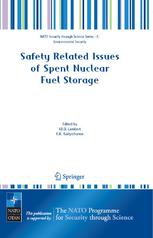

Most ebook files are in PDF format, so you can easily read them using various software such as Foxit Reader or directly on the Google Chrome browser.
Some ebook files are released by publishers in other formats such as .awz, .mobi, .epub, .fb2, etc. You may need to install specific software to read these formats on mobile/PC, such as Calibre.
Please read the tutorial at this link: https://ebookbell.com/faq
We offer FREE conversion to the popular formats you request; however, this may take some time. Therefore, right after payment, please email us, and we will try to provide the service as quickly as possible.
For some exceptional file formats or broken links (if any), please refrain from opening any disputes. Instead, email us first, and we will try to assist within a maximum of 6 hours.
EbookBell Team

4.0
76 reviewsAt a NATO-sponsored workshop in Almaty in September 2005, specialists from the IAEA, Brazil, France, Kazakhstan, Poland, Russia, USA and Uzbekistan discussed safety-related issues of storing spent nuclear fuel. Fifteen papers dealt with aluminium-clad fuel discharged from research reactors worldwide, five papers were concerned with stainless steel-clad fuel from fast reactors, and two were devoted to Zircaloy-clad fuel from commercial light-water reactors.
Although most attention was focused on fuel behaviour in storage pools, many countries—through lack of space—are beginning to ‘dry store’ spent fuel in an inert atmosphere in shielded casks, and both topics were covered thoroughly at the workshop. Water quality and dryness of the spent fuel, respectively, are the critical factors in avoiding material degradation for the two storage modes. No burning safety-related issue emerged from the twenty-two papers presented; however, the lack of wet storage space at most reactors and concerns regarding possible sabotage remain as issues that need to be periodically addressed.